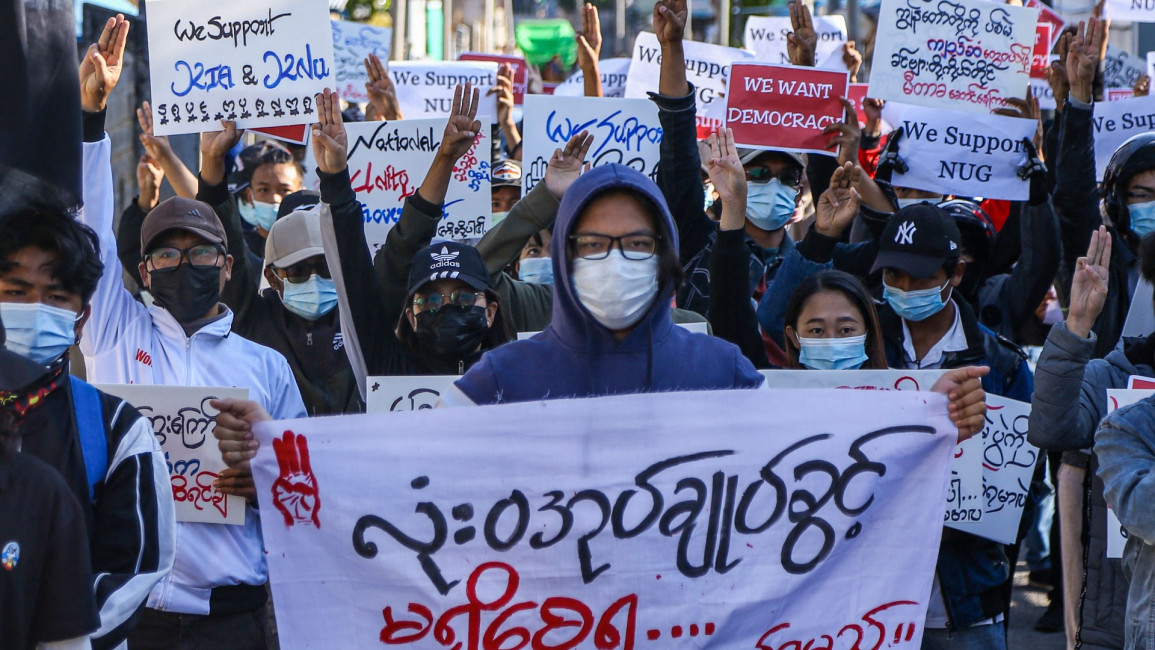Burmese CSOs launch OECD complaint against Telenor for sale to Lebanon's M1 Group
A group of Burmese civil society groups have launched a formal complaint against Norwegian telecommunications multinational Telenor ASA for the sale of its Myanmar subsidiary, claiming that the sale violates OECD guidelines.
The complaint, filed by the Centre for Research on Multinational Corporations (SOMO) on behalf of 474 Burmese civil-society organisations, alleges that Telenor's sale of its Myanmar operations "fails to meet responsible disengagement".
Telenor announced on 8 July that it was selling its Myanmar branch to the Lebanese M1 Group for $105 million, citing regulatory challenges to its work. The decision prompted a huge outcry among Burmese activists who believe that the M1 Group will give in to demands from the ruling military junta to surveil users.
The M1 Group, co-owned by Lebanese billionare and Prime Minister-designate Najib Mikati, has a long track record of working in authoritarian countries such as Syria, Sudan and Yemen. The M1 Group also holds the second-largest amount of shares in the telecom giant MTN, which has been accused of surveling users and restricting digital privacy.
The executive director of the M1 Group, Joe Issa el-Khoury, told The New Arab earlier this month that the company would "never jeopardise its principles or reputation when it comes to human rights issues".
El-Khoury added that the M1 Group "will abide by the law" and only comply with "lawful interception requests" for users' information.
Still, Myanmar-based activists have fears about their safety should Telenor leave, as the group was long considered the best option for users' seeking to escape the military junta's watchful gaze.
"We want Telenor to stop their sale to M1," Noh Noh, a Burmese civil society activist told The New Arab under a pseudonym for fear of reprisals.
"There is no reason to believe that M1 will respect human rights and we expect that [it] will support and profit from the military and our blood which will flow from this deal."
Noh, who has been in hiding from the Myanmar military for over two months, added that he takes digital safety very seriously, deleting all messages after the fact.
Adding to his concerns is the fact that Telenor will transfer all of the data associated with its 18 million users' to the M1 Group, according to media reports. The records include "the time and date of a call, phone numbers of the parties … and the place of a call", according to Myanmar Now publication.
Further, the fact that SIM cards in Mynamar are tied to identity cards makes this user data potentially more compromising.
"Telenor has clear responsibilities to respect human rights as part of any disengagement from Myanmar - in its sale to M1, Telenor has done none of this," Noh said.
Specifically, the complaint alleges that Telenor has (1) "failed to seek to prevent or mitigate adverse human rights impacts potentially arising from the sale of its Myanmar operations", (2) that Telenor has failed to consult "relevant stakeholders", including Burmese civil society organizations, and (3) that Telenor has “not been transparent” for the reasons for its departure from Myanmar.
Telenor’s communications director, Tormod Sandstø, told The New Arab that the company has "undertaken continuous human rights due diligence on the situation in Myanmar and done its utmost to minimise adverse human rights impacts related to its operations in the country".
Telenor is in a bind, as if it stays it will likely have to comply with more invasive requests from the military junta to install intercept information on its networks which gives access to users' data, but if it leaves, it might be replaced by an actor who has fewer scruples about human rights.
The price of Telenor’s 'fire sale' to the M1 Group indicates how eager it was to exit the country and relieve itself of the human rights dilemma its presence in Myanmar was causing it. Last year the company made over $800 million from its Myanmar operations, making the $105 it charged the M1 Group a paltry sum.
"We understand that Telenor is in a complex solutions and there are no easy solutions," Diego Alexander Foss, Advisor on responsible Business and Investments at the Norwegian Forum for Development and Environment, said in the OECD complaint press release.
"But we still expect all Norwegian companies to perform due diligence in all their operations, including when they wish to sell down."



